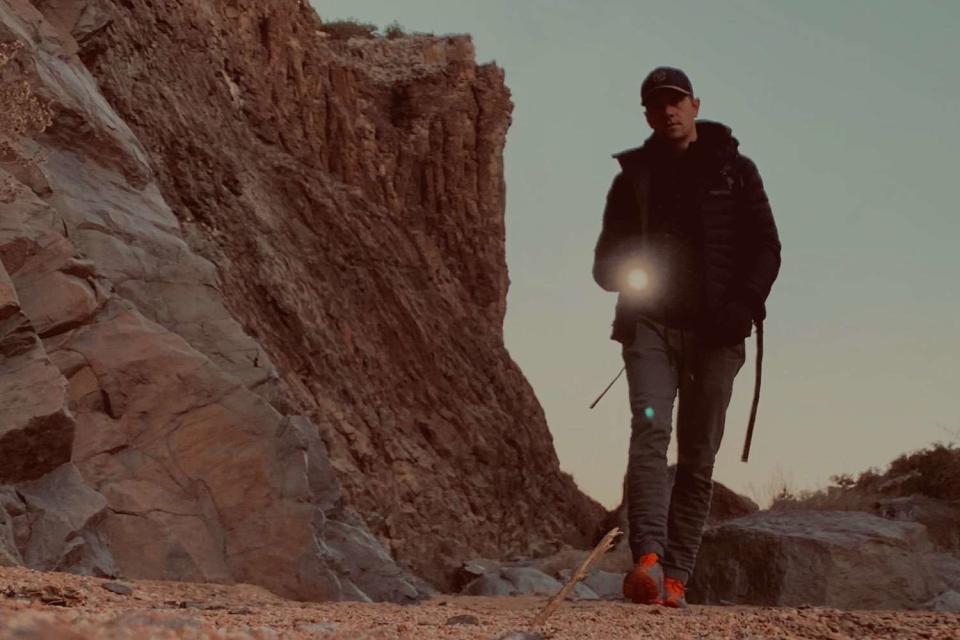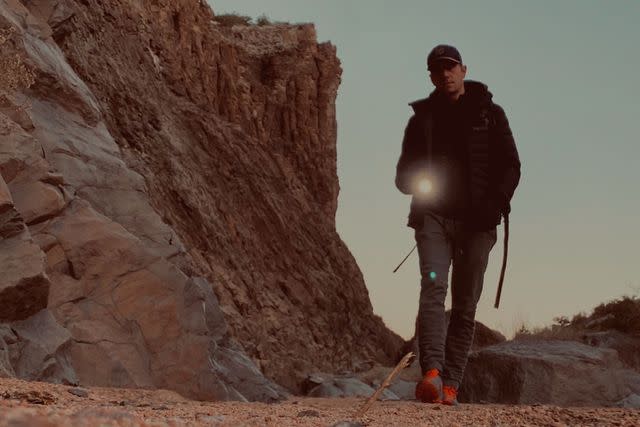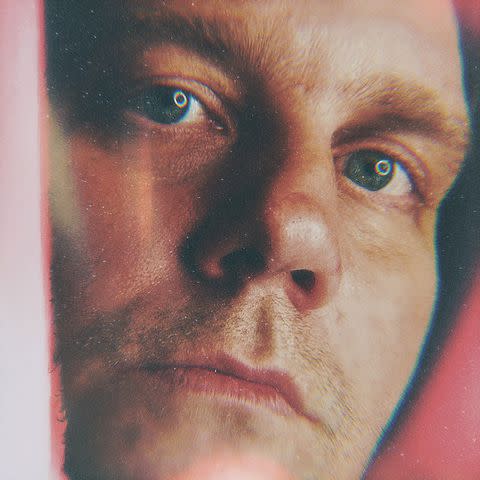Bo Rinehart Channels Abuse and Addiction to Release 'Doing the Best I Can' Under New Name
- Oops!Something went wrong.Please try again later.
You can either blame other people for your struggles, be resentful or you can look inward and say, 'This is something that I deserve grace and forgiveness for,'" the musician tells PEOPLE

Bo Rinehart was full of confidence and bravado on stage with NEEDTOBREATHE, the multi-platinum, Grammy-nominated rock band he formed with his brother, Bear Rinehart, more than two decades ago. Bo Rinehart's voice wraps around harmonies like silk threads as his fingers attack his instrument's strings.
While that was his life for 20 years, the band revealed Rinehart had stepped away from the group in 2020. The South Carolina native was deep in a battle with alcohol and, through years of trauma work, discovered his history was darker than he realized.
Rinehart was sexually abused by three different people between the ages of 6 and 16 years old. Until he started therapy, he didn't remember much of it. Music helps him process his feelings. And his new song, "I'm Right Here," is about losing himself at 6 years old and working to reconnect.
"I'm going to have to face it and hit it head-on," says Rinehart, 41, who released the song, along with "Doing the Best I Can," out Friday, under the name Coy Roy. "That's what the song is about, really coming to terms with it and knowing you can either blame other people for your struggles, be resentful or you can look inward and say, 'This is something that I deserve grace and forgiveness for,' and allow myself that."
"'Doing the Best I Can' is about [dealing with childhood sexual abuse] as an adult. 'I'm Right Here' is me coming to terms with having to deal with my childhood," he explains.

The singer remembers carrying that weight as a child and not understanding that he was completely innocent. He was homeschooled and felt isolated in the rural area where he grew up. Rinehart likens dealing with trauma to peeling back layers of an onion and tells PEOPLE, "It takes time." Stepping away from NEEDTOBREATHE allowed him to take the time he needed. His life was becoming unmanageable, and after 20 years on the road with a rock band, he realized that his challenges combined with that lifestyle were a toxic combination.
"At some point in our lives, we get to this stage — and it's generally with survivors of childhood sexual abuse, it's in their late 30s or early 40s — where it starts to surface whether you want it to or not," he says. "You'll start to see how your life's kind of breaking down."
Related:Brooke Shields Reveals She Was Sexually Assaulted 30 Years Ago: 'I Blamed Myself'
Healing has been a slow process for Rinehart, and curbing his alcohol addiction was initially the primary focus. He soon realized that alcohol was a surface problem that masked problems with much deeper roots.
"Once you start digging in the dirt — that's a Peter Gabriel reference — you start to uncover things, and you can either keep going forward or lay there and die," he says.
Before therapy, Rinehart remembered two instances of abuse, but he started to remember more over time. He had a lot of questions. Rinehart wanted to know how, why, and where justice was. He had to understand how the abuse impacted his life in "crazy ways." He had to learn how to love himself, face himself and come to terms with what happened so he could know himself and forgive others.

The long process was necessary, he says, for his healing and to be a better dad, husband and person. Processing his trauma has helped Rinehart regain his artistic voice. He finds inspiration in the Maya Angelou quote, "A bird doesn't sing because it has an answer. It sings because it has a song."
"Knowing that I'm a work in progress gave me a lot of freedom," he says. "I'm still working, and I've rediscovered love and joy and peace in being at home with my kids, my family, and learned to love making music again."
Rinehart took the name Coy Roy from the Paul Simon song "50 Ways to Leave Your Lover."
The lyrics include: "You just slip out the back, Jack / Make a new plan, Stan / You don't need to be coy, Roy / Just get yourself free"
Rinehart found the song's dedication to moving forward inspirational.
"I love the idea that I don't have to be coy, Roy," Rinehart says. "[What happened to me] is not my identity, even though all of my stories are super personal. It's a form of the art that I'm making. It's a canvas. It's a tool for me to be able to tell my story. But that image is not my identity. I don't have to be anything to anyone. I love the idea that the line right after that is just, 'Get yourself ready.' Taking that action step is big for me."
For more People news, make sure to sign up for our newsletter!
Read the original article on People.

